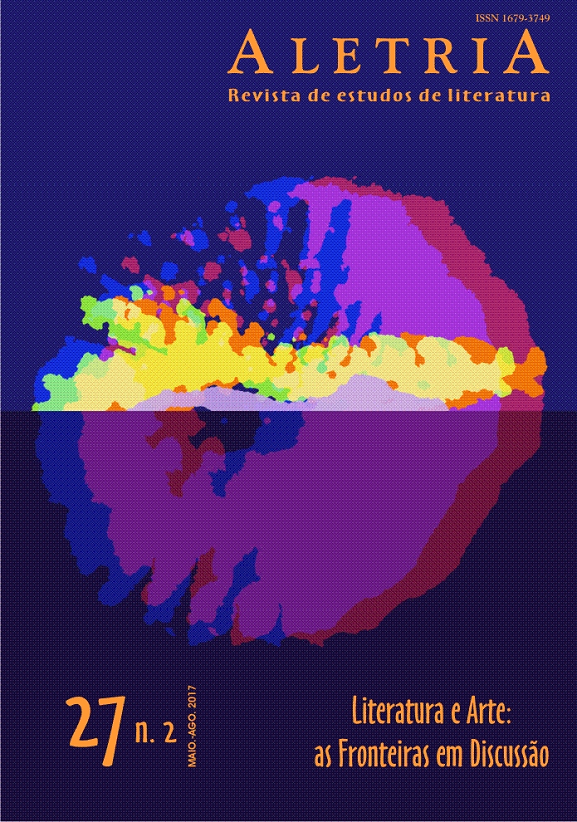Ex-Combatant and Historian: Ancient and Contemporary Reflections
DOI:
https://doi.org/10.17851/2317-2096.27.2.305-322Keywords:
Thucydides, Polybius, failure, ancient historiography, fictionAbstract
Both Thucydides and Polybius were ex-combatants who chose to write history as a consequence of their exiles. Their option was a political attitude, albeit indirect. This text discusses the historiographical pressupositions of each historian in order to show how their political and military experiences contributed to the way they wrote their texts. At the same time, it tries to suggest how each contribution can still be helpful to contemporary historiographical reflections, chiefly to discussions about the porosities between fiction and historiography.
Downloads
References
EAGLETON, T. The Event of Literature. New Haven; London: Yale University Press, 2012.
GIBSON, B.; HARRISON, T. (Ed.). Polybius and His World: Essays in Memory of F. W. Walbank. Oxford: OUP, 2013. DOI: https://doi. org/10.1093/acprof:oso/9780199608409.001.0001.
LEE, C.; MORLEY, N. (Ed.). A Handbook to the Reception of Thucydides. Malden; Oxford; Chichester: Wiley & Blackwell, 2015.
LIMA, L. C. História. Ficção. Literatura. São Paulo: Cia das Letras, 2006.
LONGLEY, G. Thucydides, Polybius, and Human Nature. In: SMITH, C; YARROW, L. M. (Org.). Imperialism, Cultural Politics, and Polybius. Oxford: OUP, 2012. p. 68-84. DOI: https://doi.org/10.1093/ acprof:oso/9780199600755.003.0005.
MILTSIOS, N. The Shaping of Narrative in Polybius. Berlin, Boston: De Gruyter, 2013. DOI: https://doi.org/10.1515/9783110330298.
NICOLAZZI, F. A história entre tempos: François Hartog e a conjuntura historiográfica contemporânea. História: questões & debates, Curitiba, n. 53, p. 229-257, 2010.
PIRES, F. M. The Rhetoric of Method: Thucydides I.22 and II.35. The Ancient History Bulletin, Northfield, v. 12, p. 106-112, 1998.
POLYBIUS. Historiae. Ed. Th. Büttner-Wobst. reimpr. Lipsiae: Teubner, -1995. 5 v.
ROOD, T. Polybius. In: DE JONG, I.; NÜNLIST, R.; BOWIE, A. (Ed.). Narrators, Narratees, and Narratives in Ancient Greek Literature: Studies in Ancient Greek Narrative. Leiden; Boston: Brill, 2004a. v. 1, p. 147-164. DOI: https://doi.org/10.1163/9789047405702_012.
ROOD, T. Thucydides. In: DE JONG, I.; NÜNLIST, R; BOWIE, A. (Ed.). Narrators, Narratees, and Narratives in Ancient Greek Literature: Studies in Ancient Greek Narrative. Leiden; Boston: Brill, 2004b. v. 1, p. 115-128. DOI: https://doi.org/10.1163/9789047405702_010.
ROOD, T. Thucydides: Narrative and explanation. Oxford: OUP, 1998.
SEBASTIANI, B. B. La storia come mezzo: l’Odisseo mediatore di Polibio. Erga-Logoi, Milano, v. 3.2, p. 123-148, 2015. DOI: http://dx.doi. org/10.7358/erga-2015-002-batt.
SOARES, M. T. M. História e ficção em Paul Ricoeur e Tucídides. Coimbra, s/n, 2017. DOI: https://doi.org/10.14195/978-989-26-1296-6.
SOARES, M. T. M. Tempo, mythos e praxis: o diálogo entre Ricoeur, Agostinho e Aristóteles. Porto: Fund. Eng. A. de Almeida, 2013.
THORNTON, J. Polybius in Context: the Political Dimension of the Histories. In: GIBSON, B.; HARRISON, T. (Ed.). Polybius and His World: Essays in Memory of F. W. Walbank. Oxford: OUP, 2013, p. 213-229. DOI: https://doi.org/10.1093/acprof:oso/9780199608409.003.0011.
THUCYDIDIS. Historiae. Oxford: Clarendon Press, 1967-1970. 2 v.
Downloads
Published
How to Cite
Issue
Section
License
Copyright (c) 2017 Breno Battistin Sebastiani (Autor)

This work is licensed under a Creative Commons Attribution 4.0 International License.
Authors who publish with this journal agree to the following terms:Authors retain copyright and grant the journal right of first publication with the work simultaneously licensed under a Creative Commons Attribution Non-Commercial No Derivatives License that allows others to share the work with an acknowledgement of the work's authorship and initial publication in this journal.Authors are able to enter into separate, additional contractual arrangements for the non-exclusive distribution of the journal's published version of the work (e.g., post it to an institutional repository or publish it in a book), with an acknowledgement of its initial publication in this journal.Authors are permitted and encouraged to post their work online (e.g., in institutional repositories or on their website) prior to and during the submission process, as it can lead to productive exchanges, as well as earlier and greater citation of published work (See The Effect of Open Access).





